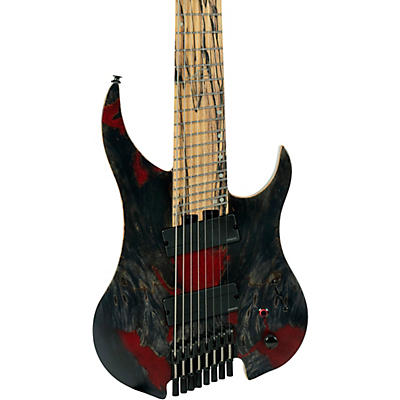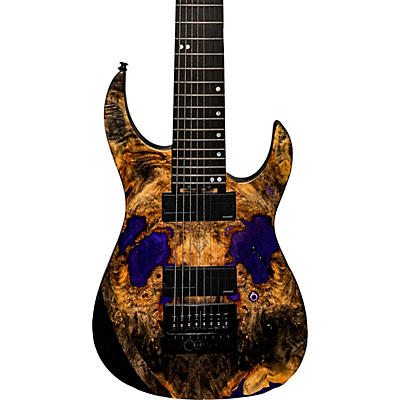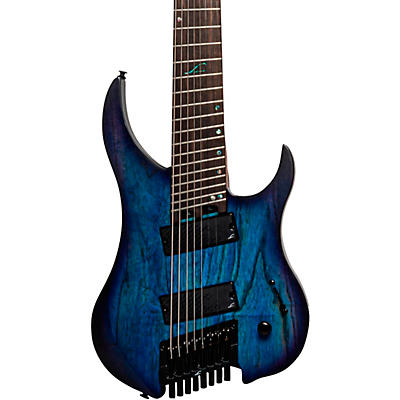Explore the Advantages of Legator Guitars
If there's one thing Legator guitars are about, it is superb playability. Since 2012, Legator guitar design has been at the cutting edge for technically advanced players. They're always looking for the best new guitar technology. From the traditional, single-cutaway look of the Opus body to the sleek, shred appeal of the Ninja or the sophistication of the headless Ghost design, Legator has a guitar body design that suits your style. With an impressive range of price and value, Legator guitars are worth serious consideration.
Legator guitars feature ultra-thin necks and high-output pickups. There are five different production levels designed to suit any guitarist's budget. From the affordable S series to the flagship X series instruments, all Legator guitar models feature incredibly lightweight bodies for extended playing comfort.
Many modern metal and prog guitarists reach beyond the limitations of standard E-E tuning. In a word of heavier and heavier sounds, extra low strings can frequently go as low as a traditional electric bass's open "A" string. In addition to six-string electric guitars, Legator builds a wide variety of extended range seven- and eight-string guitars to provide contemporary players the low-frequency power they crave.
Legator also leads the way in multi-scale and headless guitars. They provide a wide range of these new approaches across much of their entire product line. Let's take a moment or two to dig a little deeper into those features, because they are important to Legator's guitar design philosophy.
Legator Headless Guitars
Headless guitars have been around for four decades or more, but many guitarists have never played one. By removing the headstock and its additional string length, individual string tensions are reduced. This make the guitar easier and less fatiguing to play. Reduced string tension also leads to increased speed, as less energy is used to fret a note. Most headless designs, like Legator's Ghost guitar, utilize a zero fret. Zero frets help provide more accurate intonation and generally lower action for smoother, easier playing.
Legator Multi-Scale Guitars
Multi-scale is a concept that's both older and newer. There are examples of multi-scale instruments going back as far as the late 16th century. For guitars, the earliest patent dates to 1900, but the concept took solid hold in the late 1980s, thanks to luthier Ralph Novak. The concepts behind Legator's multi-scale guitars, like all others, have to do with ergonomics, tone, and tension.
Electric guitarists have known for decades that shorter scale guitars tend to play more easily and have warmer tones on the high strings, sometimes at the expense of a muddier low end. Longer scales have crisp, almost piano-like tone on the low strings, but the high strings can be too bright, and harder to bend. Varying the scale length makes for a more balanced tone and consistent playability. In addition, non-parallel frets more naturally follow the natural form of an outstretched human hand. Legator guitars' non-parallel frets create more natural hand and wrist movement, reducing fatigue and the possibility of injury.








































































































































